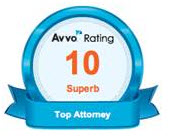In challenging economic times, many individuals and businesses are considering their full range of financial options. One of those options may be bankruptcy. However, before pursuing that route in earnest, you may want to consider some key questions. This will help you make an informed decision.
Would Chapter 7 bankruptcy or Chapter 13 bankruptcy be better?
Chapter 7, also called straight bankruptcy, requires you to sell off all non-exempt assets. These can include your work-related tools, your car, and even your furnishings and clothes. Chapter 13, on the other hand, protects some assets and lets you set up a repayment plan over three to five years.
Is it affordable?
Filing for bankruptcy includes specific costs, like filing fees and attorney fees. It is important to get a clear handle on how much those costs will be before starting the process.
Will it help?
It depends on what debts you need to address. For example, unless you prove undue hardship, bankruptcy won't erase student loans. It is important to learn which debts will be addressed before you file.
Do I qualify?
To qualify for Chapter 7 bankruptcy, you have to pass a means test, with the court making a determination about your ability to pay your debts. If they decide that you don't have that ability, you may be eligible. The court will look at your monthly disposable income. That is the amount you have left from your earnings each month after paying for necessary expenses. The deductions allowed vary by region. If you're not eligible for Chapter 7, you may still be eligible for Chapter 13.
Can I live with the effects?
Bankruptcy will stay on your credit report for 10 years, and it is a matter of public record.
After considering these questions and perhaps seeking legal guidance, you can make an informed decision about how best to deal with your debts.
Source: NerdWallet.com, "5 Questions to Ask Before Declaring Bankruptcy," Anisha Sekar, accessed May. 16, 2015








No Comments
Leave a comment